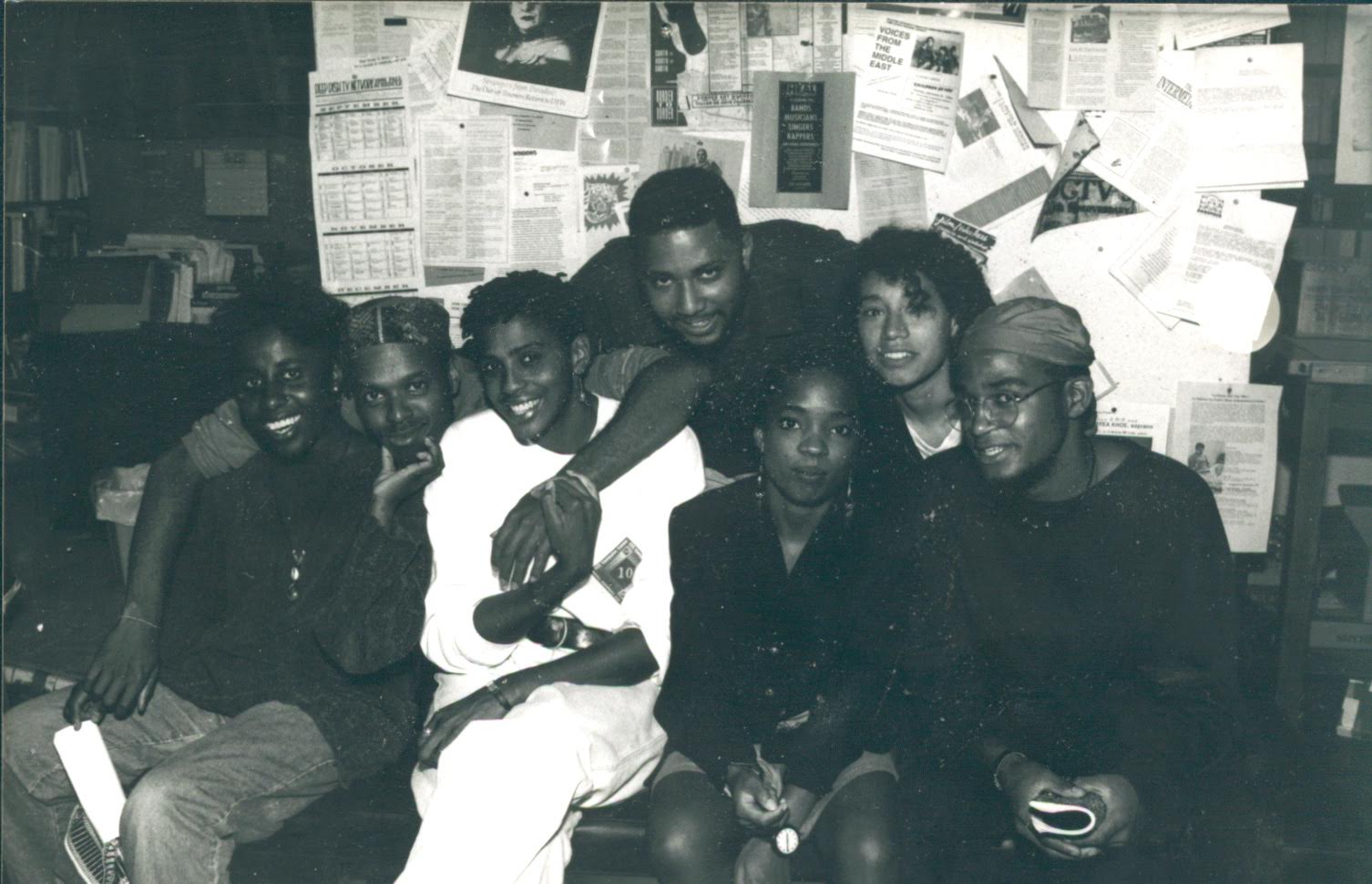
NCZ jars viewers' ordinarily passive acceptance of visual images and challenges them to form their own interpretations and, most important, their own opinions.
Not Channel Zero
The Revolution, Televised
A video series by Black Planet Productions
Black Women, Sexual Politics and the Revolution (1992)
Doing What It Takes: Black Folks Getting and Staying Healthy (1994)
The Nation Erupts (1992)
NCZ Goes to War (1992)
Our House: Lesbians and Gays in the Hood (1993)
X 1/2: The Legacy of Malcolm X (1994)
Not Channel Zero encourages viewers to locate and challenge the biases of television and other media.
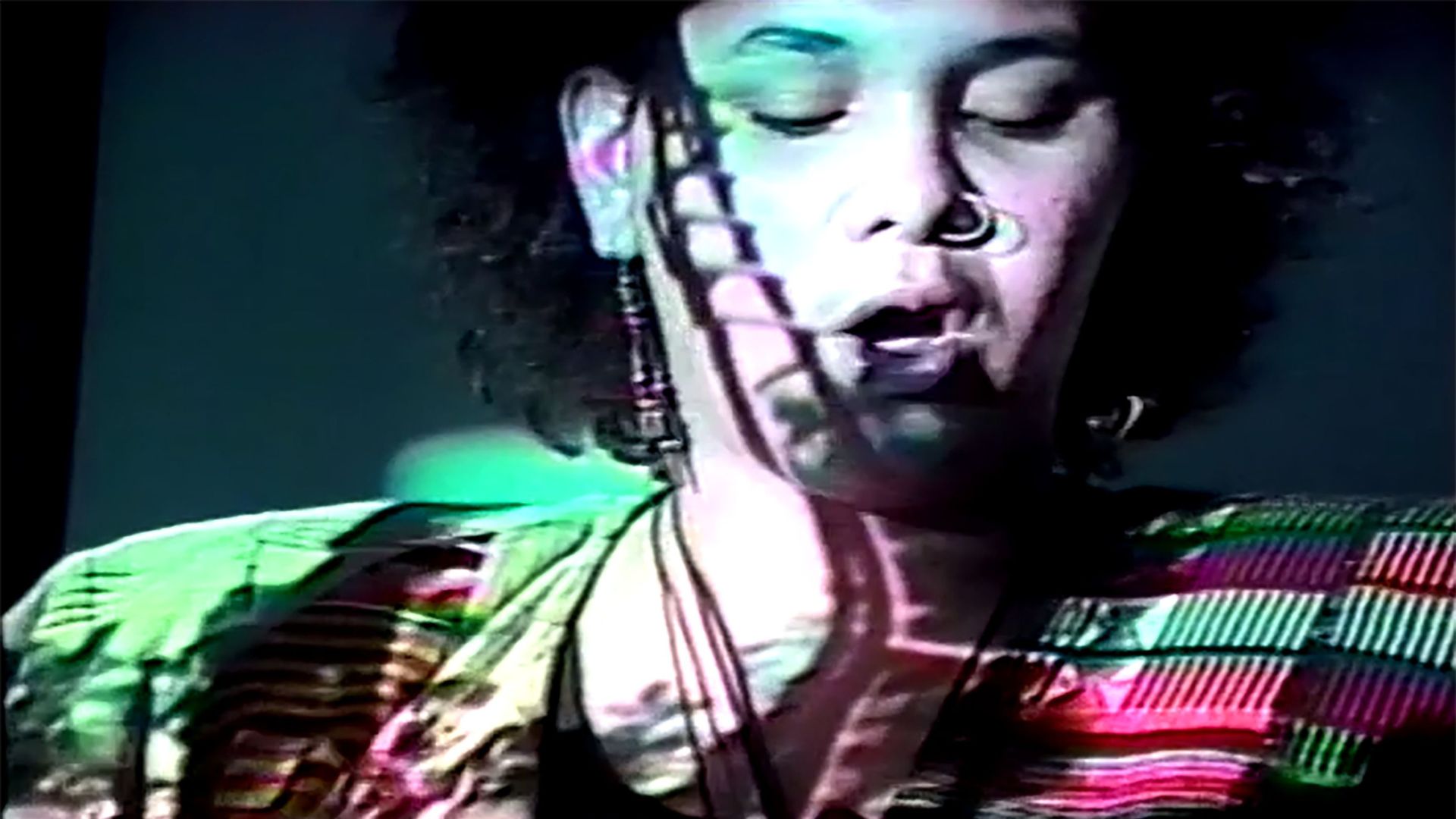
As featured in
Artnews and
MoMA's 2023 Signals exhibition
Not Channel Zero Talk on August 2nd, 2023 and Streaming Exhibition from July 31-August 2, 2023
presented by Third World Newsreel and The Documentary Forum at CCNY
Collectively, the works and artists in the exhibition confront the ways in which the physical world has merged with the virtual, and reveal a history that is global, critical, and activist from its very beginnings.
Not Channel Zero toted around their camera at protests held across the US, offering a less polished and more nuanced view of matters than you'd find on the nightly news.
Black Planet Productions was a New York City-based video collective of African American video artists formed in the early 1990s. It combined alternative television style with a critique of commercial media, using low-end, accessible technology and extremely small budgets, sometimes only fifty dollars. For three years, the collective produced regular programming for Manhattan Cable Access on the anti-war movement, homophobia in communities of color, police brutality, sexism, and urban issues in Black and Latino communities. Revising the famous Gil Scott Heron phrase, their motto was "The Revolution, Televised," asserting they were making "grassroots, Afrocentric television aiming at politics, culture, and re-education." The collective adopted Afrocentric style, form, and content, bringing hip hop strategies of slow motion, fast forwarding, and repetition to their videos as they appropriated commercial media images. Black Planet Production was founded by Thomas Poole, George Sosa and Cyrille Phipps, and members included Jacqueline Dolly, Donna Golden, Mark Aubert, Joan Baker and Art Jones. Download Black Planet Productions and Not Channel Zero press kit.
Not Channel Zero offers the most sophisticated and complex reading of the riots and the Holliday videotape to date.
Not Channel Zero Ten-Point Plan
1. To provide a forum for the education of the African community, promoting a cultural connection among all people of the African Diaspora
2. To promote political, social and economic empowerment
3. To act as a forum to discuss issues and evaluate problems
4. To locate and provide resources that will develop problem solving techniques
5. To acknowledge the cultural contributions of Africans in the United States and abroad
6. To provide a provocative alternative to mainstream media
7. To reflect the concerns of our community and provide an outlet for their grievances
8. To celebrate and honor the memory of our African ancestors
9. To act as a creative venue for emerging artists
10. To provide a positive and respectful analysis of the African American community
An inventive New York media collective with an afrocentric perspective and a refreshing way of combining aesthetic imagination with political savvy.
-
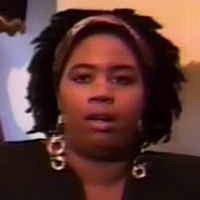
Black Women, Sexual Politics and the Revolution (1992) by Not Channel Zero
Black women speak candidly on issues of sex, class and gender roles. The video examines how African American women deal with issues of poverty, abortion, battering and lack of health care, and addresses how women's roles in community struggle and activism are often overlooked or ignored. The video also looks at media portrayals with an emphasis on the representation of Black women in music video. Book Educational or Public Screenings.
Juror's Choice Award, Black Maria Film Festival
Walker Art Center * Black Cinemateque, Dallas * American Film Institute National Video Festival * Institute of Contemporary Art * The Third Wave International Women's Film and Video Festival * Women in the Director's Chair * Black International Cinema, South Bend and Berlin * African American Women Behind the Camera, Brooklyn Museum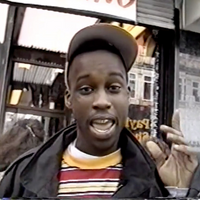
Doing What It Takes: Black Folks Getting and Staying Healthy (1994)
Black communities are disproportionately affected by cancer, heart disease, low birth weight and infant mortality rates. Facing political, economic and racial barriers to good health, this video documents the anger and mistrust in the Black community towards the medical establishment based on a history of abuse and lack of access. Educational and Public Screenings.
DuSable Museum of African American History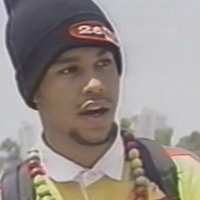
The Nation Erupts (1992)
Set within the context of current African American struggles, this video examines the historical and contemporary legacies of Malcolm X. Using mixed media and experimental audio, X & 1/2 explores Black pride, unity and self-defense, a new generation's interpretations of his heritage, and a popular culture which commercializes his memory. Educational and Public Screenings.
First Place, Hometown Video Award
Whitney Museum Biennial, 1993 * Images, Festival of Independent Film and Video, Toronto
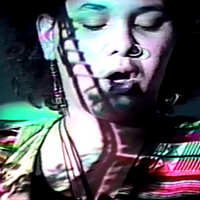
NCZ Goes to War (1992)
An examination of the Persian Gulf anti-war movement and its scant coverage in the mainstream media. NCZ went out in the streets and documented the response from activists, demonstrators, journalists and others in the movement. Educational and Public Screenings.
First Place, Community Video, Black Filmmakers Hall of Fame
First Place, Hometown Video Award
Signals exhibition, Museum of Modern Art (MoMA)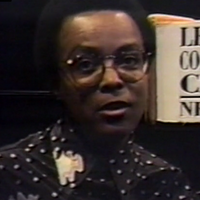
Our House: Lesbians and Gays in the Hood (1993)
Up front and in your face interviews with Black gays and lesbians provide an uncompromising look at homophobia, racism, alienation and empowerment for queer African Americans. This riveting documentary powerfully contextualizes gay and lesbian experience within the African American experience. Educational and Public Screenings.
Honorable Mention, Public Affairs Documentary, Prized Pieces International Film and Video Competition
London Lesbian and Gay Film Festival * Lesbian Film Festival, Berlin * San Francisco International Lesbian and Gay Film Festival * NewFest, New York Lesbian and Gay Film Festival * American Film Institute National Video Festival * The Third Wave International Women's Film and Video Festival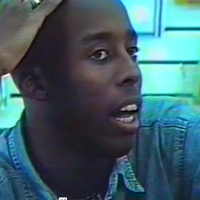
X 1/2: The Legacy of Malcolm X (1994)
Set within the context of current African American struggles, this video examines the historical and contemporary legacies of Malcolm X. Using mixed media and experimental audio, X & 1/2 explores Black pride, unity and self-defense, a new generation's interpretations of his heritage, and a popular culture which commercializes his memory. Educational and Public Screenings.
Flaherty Film Seminar * New York Video Festival * The Mint Museum of Art * San Francisco Museum of Modern Art * Center for the Arts at Yerba Buena Gardens * International Video Week, Switzerland * Through the Lens, WYBE
The show has a hyperactive style that often jolts viewers into a stimulative, occasionally witty visual escapade.Ray Smith, New York Newsday
Available for Educational and Public Screenings